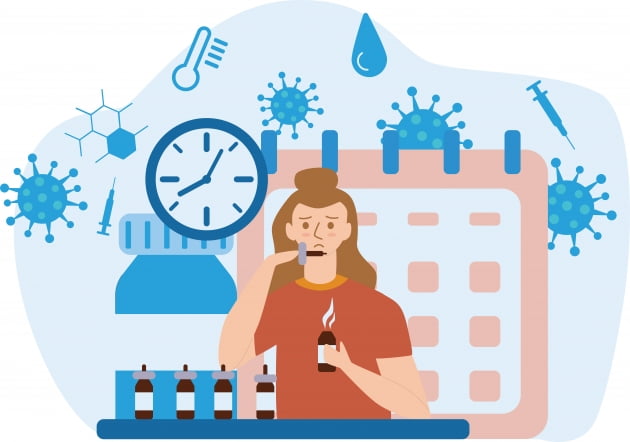Over the past three years, the COVID-19 virus has changed the way people live and how they live. More than 20,000 people are still infected with COVID-19 every day. So far, in Korea alone, over 25 million people have contracted COVID-19. Now, Corona 19 has gone through the omicrons and transformed into various mutated viruses such as centaurs. Fortunately, due to the nature of the virus, the transmission power has increased, but the death rate has decreased, reducing the social burden. However, many of those infected with COVID-19 complain of various physical changes and discomforts.
Typical symptoms of COVID-19 are fever, cough, chills, and sore throat. The sense of taste and smell is also often lost. According to a study by Italian and American research institutes, almost 90% of people infected with the coronavirus have lost their sense of smell and taste.
Why can’t i smell or smell when i get COVID-19? A research team from Harvard Medical School has announced the results of a study that showed that the olfactory nerve, which smells, is not directly damaged due to the Corona 19 virus, but is not perceived due to damage to the nerve cells that help. to transmit the smell.
The implications of this study are promising. This means that even if the olfactory nerve is paralyzed by the Corona 19 virus, several nerve cells are regenerated and the function of smell can be restored over time.
The problem is that the loss of taste and smell often stays like a sequel for a while. According to one study, 5-7% of people experienced discomfort even after 6 months of treatment for COVID-19.
In particular, many patients complain of an abnormal sense of smell (parosmia), in which an unpleasant odor is continually perceived. Persistent unpleasant odors, such as the smell of burning objects or rotting meat. This sensation can occur before the onset of COVID-19 symptoms such as fever and cough, but if it persists as a sequela, it can lead to problems such as depression, bad odor, bad breath, malnutrition, loss of appetite, and cognitive disturbances. decline.
The sense of taste is connected with the sense of smell. If you don’t have the sense of smell, you lose your sense of taste. According to a study from the University of California, USA, the inflammatory response of the immune system slows the regeneration of the taste buds, resulting in a decrease in taste, as the taste buds, which perceive the taste, are damaged and regenerated due to infection with COVID-19 . Eventually, the inability to taste also reduces the pleasure of eating, so even if COVID-19 is cured, it remains as a sequela and can lead to problems such as depression, loss of appetite, and cognitive decline, such as loss of smell. .
A study on the sequelae of smell and taste was recently published by Italian researchers. As a result of follow-up for two years after the onset of COVID-19, 88.2% of patients who reported smell and taste disturbances recovered early and 10.9% recovered late. That is, more than 99% were fully recovered within 2 years. Conversely, 1% of people have not fully recovered their sense of taste and smell due to the side effects of COVID-19. Therefore, if smell and taste return late due to the side effects of COVID-19, you should visit a hospital for diagnosis and treatment.
About 19% of people are said to feel fatigued not only from smell or taste but also from the after-effects of Corona 19, and 28% of those who suffer from other types of sequelae. No matter how mild your COVID-19 symptoms are, it’s very important to protect yourself without getting caught.
Kim Hyun-jong, Director, Seoul Top Dental Hospital


